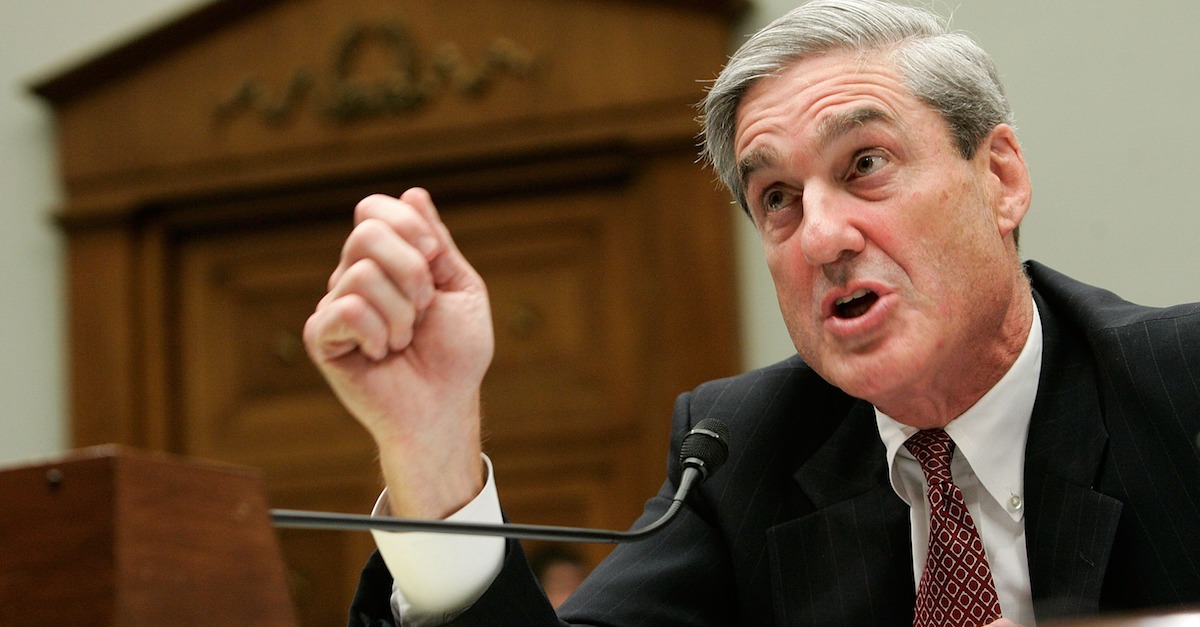
Special Counsel Robert Mueller‘s attempt to explore various areas of alleged criminality by Paul Manafort was shut down on multiple fronts by U.S. District Judge Amy Berman Jackson in a minute order released Thursday morning. The order reflected Judge Jackson’s decision-making that was fully outlined during a hearing held on Tuesday.
So, what’s left out for now? Quite a bit.
In a June filing with the court, prosecutor Andrew Weissmann said that Mueller’s team would submit evidence regarding “a multi-million dollar payment” made to an unidentified law firm–referred to as “Law Firm A” in the evidentiary filing–by way of “international wires originating from a Manafort-controlled offshore account.” This evidence, Weissmann argued, would show that Manafort and his co-conspirators attempted “to avoid certain limitations imposed by Ukrainian public procurement law.”
Well, that evidence is out. Judge Jackson noted:
The government’s request to introduce evidence concerning procurement law in the Ukraine, including any evidence that alleged payments to Law Firm A were structured to avoid limits imposed by Ukrainian law, has been withdrawn, and therefore the request is DENIED as moot.
In that same June filing, Weissmann also noted that the government planned to introduce evidence regarding allegedly false statements made by Manafort to the IRS. To wit, the special counsel claimed that “Manafort falsely represented to the Internal Revenue Service” that a New York City apartment he owned was either a business or personal residence–depending on which claim would result in better tax benefits.
That’s out the window, too. Again, Judge Jackson:
The request to introduce evidence concerning alleged false statements made to the IRS concerning a New York city [sic] apartment is DENIED on the grounds that the evidence has little relevance to the charges in the indictment, it would be collateral to the matters to be tried and confusing to the jury, and the prejudicial impact outweighs any probative value.
The June evidentiary filing also previewed the government’s plan to introduce evidence “that, from in or about 2009 through 2014, Manafort, [Rick] Gates, and [Konstantin] Kilimnik structured a series of loans between the Cypriot entities that they controlled … to avoid the recognition of those funds as income.” In other words, the government wanted to argue that Manafort, Gates, and one of their alleged co-conspirators in the Ukraine had intentionally misrepresented income as loans in order to avoid paying taxes on said income.
Well, based on government representations at Tuesday’s hearings, that’s off the table as well. Judge Jackson wrote, “With respect to evidence related to the designation of transfers between Cypriot accounts as loans, the government clarified that it is not seeking to introduce evidence of the fact that an audit of the accounts was conducted in Cyprus or the results of the audit so that issue is also moot, and the request is DENIED on that basis.”
Was it a total wash for the government? Not entirely. In a final ruling, Judge Jackson noted that the government could make reference to former lobbying work Manafort performed for the Kingdom of Saudi Arabia–but only in very limited form. That is, such references would have to be made by way of an agreement between Mueller’s office and Manafort’s defense or in the form of heavily-censored documentation for the very limited purpose of showing that Manafort was familiar with applicable laws on foreign lobbying. That is, no clients’ names and none of the potentially gory details.
Judge Jackson did leave the door open for some of the above evidence to make its way into the record, however, if the relevant subject matters are first brought up by the defense and she herself then allows it.
“If during the course of the trial, the government is of the view that argument or evidence introduced by the defendant has opened the door to the admissibility of any excluded material, it may raise the matter with the Court again at that time, but the evidence may not be mentioned to the jury until the Court has ruled,” the judge said.
In sum, Mueller’s team lost out on a lot of potentially damaging material to pin on Manafort over the past few days, but they could still manage to get some of it in, depending on how the trial plays out.
[image via Alex Wong/Getty Images]